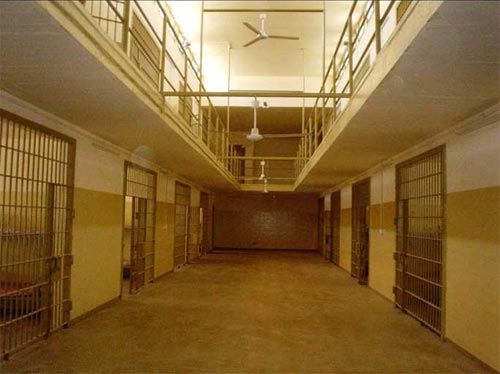New York State To Curb Use Of Solitary Confinement In Prisons: A ‘Harmful And Inhumane’ Practice

No man is an island, the 17th-century poet John Donne once penned. So why do corrections departments across the U.S. force so many inmates into solitary confinement after they break a rule in jail, cutting them off from human interaction, the outside world, and proper medical treatment?
The treatment of mentally ill prisoners has been the center of a debate over whether American prison systems are actually improving and helping criminals, or leaving them worse for the wear. Now, New York State announced that it will take steps to begin battling the use of solitary confinement, which has been referred to as “a harmful and inhumane practice that has for years been used as a punishment of first resort.”
According to an announcement on the New York Civil Liberties Union (NYCLU) website, the state will take “immediate steps to remove youth, pregnant inmates and developmentally disabled and intellectually challenged prisoners from extreme isolation.” The agreement makes New York State “the largest prison system in the United States to prohibit the use of solitary confinement as a disciplinary measure against prisoners who are younger than 18.”
The agreement was a direct result of an NYCLU lawsuit, Peoples v. Fischer, which challenged the use of solitary confinement in NY state. NYCLU has been fighting to remove the use of solitary confinement for years; a 2012 report known as “Boxed In” showed how DOCCS carried through thousands of “extreme isolation” sentences every year. There are currently around 3,800 state prisoners being held in “extreme isolation.”
“This agreement is an important step toward dignity and decency,” Leroy Peoples, the lead plaintiff who spent 780 days in isolation for nonviolent behavior, said in the news release.
Severe Isolation and Mental Health
Recently, the story of a 51-year-old grandmother, Jan Green, made the news after she was released from prison and charges of domestic violence were dropped. Green, who suffered from bipolar disorder, had been arrested after being accused of throwing a fan at her husband, and served several years in prison. A significant amount of that time — up to eight months — was spent in solitary confinement. Green’s mental illness actually worsened in her tiny windowless and isolated cell, as she did not receive any medication or therapy.
Green’s lawyer, Matthew Coyte, points out that this is a trend he’s dealt with countless times. Prisoners with mental disorders, often considered “dangerous,” “unstable,” or “violent,” are locked up in extreme isolation without proper treatment or care. The fear of their causing disruptions among other prisoners, as well as a lack of in-depth understanding about mental illness in the prison system, leads corrections officers to choose the quick and dirty route of getting them out of sight. The inmates’ mental health symptoms, which may include schizophrenia, psychosis, bipolar disorder, depression, or anxiety, almost always get worse in confinement, studies show.
Loneliness Kills
Recent research out of the University of Chicago found that loneliness is actually linked to a higher risk of death. Extreme loneliness can increase an older person’s chances of premature death by 14 percent, the authors found. “Retiring to Florida to live in a warmer climate among strangers isn’t necessarily a good idea if it means you are disconnected from the people who mean the most to you,” Dr. John Cacioppo, a psychologist and lead author of the study, said in a press release. “Maintaining quality relationships, engaging in meaningful activities with others and practicing healthy behaviors increase the odds of a long and happier life.”
Though Cacioppo’s study only reviewed loneliness among older adults living normal lives, there has been specific research targeting the risks of solitary confinement among both healthy and mentally ill prisoners. Research conducted by Dr. Stuart Grassian, a psychiatrist at the Harvard Medical School, concluded that solitary confinement “with minimal environmental stimulation and minimal opportunity for social interaction … can cause severe psychiatric harm.”
Up to 60 percent of inmates in solitary confinement suffer from previous mental illness. Even among healthy inmates who end up in solitary confinement, isolation can have an adverse effect on their well-being. They often end up worse off than before they entered isolation.
Under the new agreement in New York State, 16- and 17-year-old prisoners under solitary confinement must be given at least five hours of outdoor exercise and programming outside their cells, five days a week. Anthony J. Annucci, acting commissioner of the Corrections Department, said the new reforms would “make the disciplinary practices in New York’s prisons more humane, and ultimately, our state’s criminal justice system more fair and progressive, while maintaining safety and security.”



























